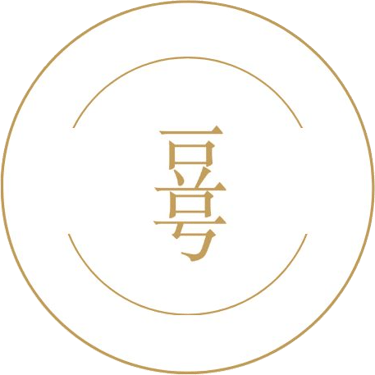Expressions of Tofu
A knife-like mouth, a tofu-like heart
The Chinese expression “dāozizuǐ, dòufuxīn” can be literally translated as “a knife-like mouth, a tofu-like heart” in English. It has a figurative meaning, describing a person who is sharp-tongued but tender-hearted.
Bean sprouts
The Chinese word “dòuyá” refers to bean sprouts. It is also used metaphorically to describe someone as physically weak and vulnerable.
Eating tofu
The Chinese expression “chī dòufu” can be literally translated as “to eat tofu” in English. However, it has a figurative meaning and is used to describe a situation where someone takes undue advantage of someone else, typically from a sexual perspective.
Grinding the soybeans to make tofu
The Chinese expression “mó dòufu” can be literally translated as “grinding the soybeans to make tofu” in English. However, it has a figurative meaning and is used to describe sexual activity between women, likening it to the process of grinding soybeans into paste during tofu production.
One can't manage to eat the hot tofu with haste.
The Chinese expression “Xīnjí chī bù liǎo rè dòufu” can be literally translated into English as “One can't manage to eat the hot tofu with haste.” However, it has a figurative meaning equivalent to “More haste less speed.”
Soyboy
“Soyboy” is a slang and often derogatory term used to describe men perceived as lacking traditional masculinity, often due to progressive views or a non-aggressive demeanor. The term emerged in online communities around 2017 and first gained traction in the United States. It originated from internet culture and stereotypes linking soy consumption to lower testosterone — a claim that has been widely debunked.
Soy pulp project
The Chinese term “dòufuzhā gōngchéng” is formed by two parts: the first part, “dòufuzhā,” means “soy pulp” from tofu manufacturing, and the second part, “gōngchéng,” means “project”. Together, they refer to poorly constructed projects with low-quality materials. In fact, in English, “jerry-built project” would be a perfect translation that conveys the same meaning, vivid imagery, as well as the logic behind the metaphor.
Tofu gathers fortune. (Dòufu dōufú.)
The Chinese expression "Dòufu dōufú" describes a Chinese tradition around the Spring Festival, where people symbolically gather good fortune by eating tofu, as the pronunciation of "dòufu" (tofu) sounds like "dōufú" (to gather fortune) in Chinese.
Three hardships in life, X, Y, and making tofu.
This Chinese expression describes the hardship of tofu makers. It follows a fixed pattern: "Three hardships in life, X, Y, and making tofu." Among them, "Three hardships in life" and the third hardship listed afterward are always "making tofu,"* while the two hardships sandwiched in between can be replaced as desired. Therefore, this expression may have different versions in different regions. For example, in Yibin, Sichuan, the version is "Three hardships in life, forging iron, mining coal, and making tofu," while in Yongzhou, Hunan, the version is "Three hardships in life, forging iron, rowing boats, and making tofu." The toil of making tofu is closely associated with the traditional production and consumption habits of tofu in China over the past two millennia. In fact, Chinese artisanal tofu shops and French artisanal bakeries operate in remarkably similar ways: Firstly, both produce essential items for the daily diet of local people, and the time required to make fresh products spans several hours. Secondly, both are deeply embedded in the social organizational structure at the grassroots level, with at least one shop per village. Thirdly, the timing and span of product purchase and consumption are consistent; consumers buy early in the morning and consume on the same day, then repurchase the next day, with the cycle repeating every 24 hours. As a result, to ensure that consumers can purchase products early in the morning, producers have to start working several hours earlier than consumers. Therefore, much like French artisanal bakeries, Chinese tofu shops begin operating as early as two or three in the morning. However, unlike the French tradition of their bakeries, this traditional cycle of tofu consumption is gradually disappearing in cities.
*From a phonetic perspective, tofu holds a permanent position in this expression because in Chinese, the words "hardship" (kǔ) and "tofu" (dòufu) rhyme.
Tofu with chives - one green and two types of white
This Chinese expression can be literally translated as ‘tofu with chives — one green and two types of white’ in English. However, it has a figurative meaning, describing a person with a clear conscience or who understands the situation clearly.
In fact, the reason there is one green and two types of white in tofu with chives is that the Chinese use both the green and white parts of chives in this dish, and tofu itself contributes the second type of white. Moreover, the expression « yīqīng-èrbái » itself is an idiom, describing a person with a clear conscience or who understands the situation clearly.
Tofu with winter squash
The Chinese term “dōngguā dòufu” refers to the dish tofu with winter squash. However, it has a figurative meaning, describing a person who meets with an accident. This is because this dish is served during the repast at the post-funeral gathering in Cantonese tradition.
